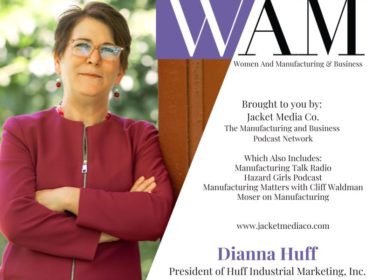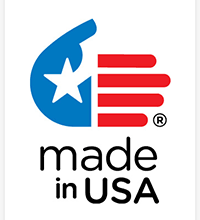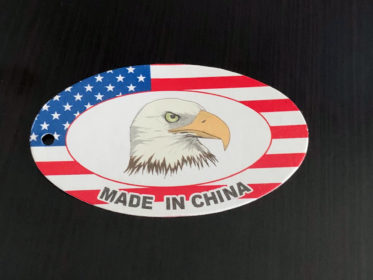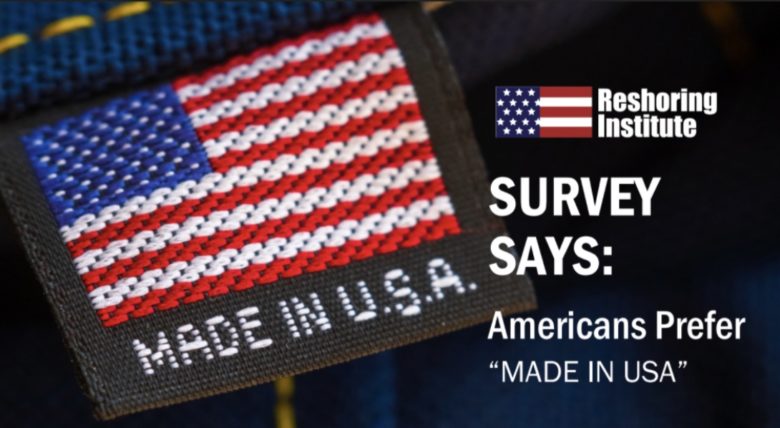
The Reshoring Institute surveyed 500 people across the United States to ask a few simple questions, including: “Do you prefer products that are MADE in the USA?” and “Would you pay more for a product MADE in the USA?”
Nearly 70% of the respondents said they prefer American-made products. And, 83.2% said they’d pay up to 20% more for products made domestically.
“The results weren’t surprising,” said Rosemary Coates, Founder and Executive Director of the Reshoring Institute. “We knew from experience that people prefer Made in USA products – and that they’d pay more for them. The survey confirmed what we knew, and it gave us the data to confirm it.”
Growing trend for American-made
In 2015, a Consumer Reports survey indicated that 8 in 10 Americans prefer American-made products over imports, and more than 60% would pay 10% or more for them. (See Links section below)
“Our data,” says Coates, “is consistent with the data collected by Consumer Reports. It also indicated that people felt it was good for America to support the economy and local workers.”
This idea was also addressed by Amy Livingston. In her piece, “Products Made in the USA – Reasons to Buy American-Made Goods,” people buy for six reasons: to support jobs, lower carbon footprint, less pollution, human rights, healthy, and a more robust economy.
But the survey data also indicated something equally important: 46% of respondents perceived that goods made in America are better quality.
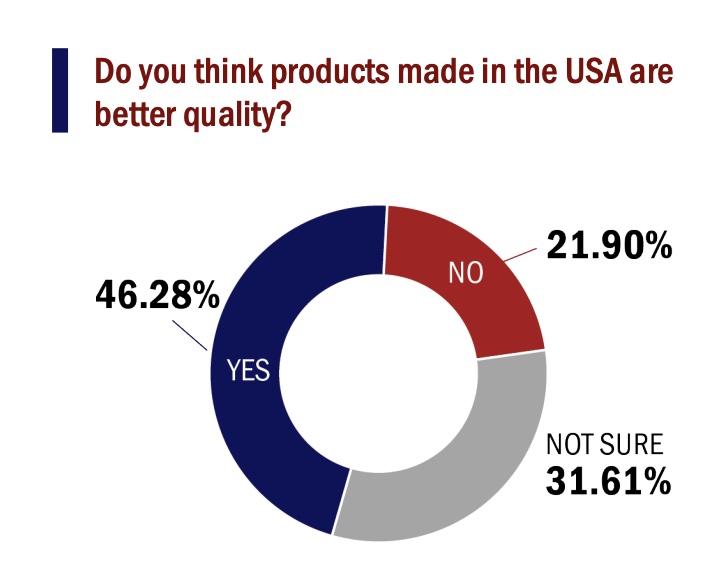
Coates and her team poked at this finding a bit. According to Coates, quality is not necessarily dependent on location as brands can force quality standards no matter the country of manufacture.
What is important, states Coates, is that consumers have a stated preference for Made in USA goods and they perceive the product quality of these goods to be higher than those made elsewhere, especially China – even if the quality is equal or better.
This perception is due in part to current geo-political landscape and its myriad complexities, and thus is beyond the scope of this post.
Suffice to say, Coates says that if you’re manufacturing consumer goods, and it costs you 20% more to produce them in the United States, you can charge up to 20% more in price because of this perception of better quality.
Plus-size apparel manufacturer Vikki Vi
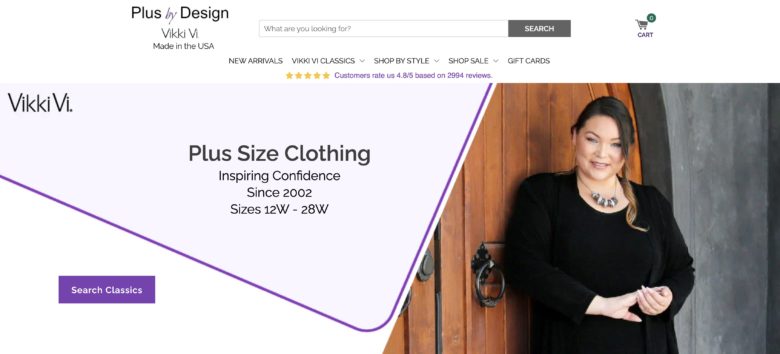
Vikki Vi CEO Danielle Malconian purchased the label in 2008 in order to expand her own plus-size e-commerce business after Vikki Vi’s original parent company filed for bankruptcy.
Under Malconian’s leadership, Vikki Vi became a favorite brand with plus-sized women due to the brand’s high-quality materials, construction, and design.
As a result, the company had a very loyal customer base and repeat customer rate of 80% – with some customers purchasing Vikki Vi products for over 25 years.
However, although the company sourced its fabric from a mill in North Carolina and made its line 100% in the US, it wasn’t until Malconian worked with the Reshoring Institute that she added a “Made in USA” tag to her products.
“The market in which Vikki Vi operates is extraordinarily competitive,” states Coates, “and the brand will continue to face challenges due to the ever-changing nature of the apparel industry. However, ‘Made in America’ is the best brand strategy Vikki Vi can employ now and into the future – in addition to her strong relationships with manufacturing partners to create a unique look that other brands have tried to emulate and failed.”
Manufacturers taking small steps to begin reshoring
In her work with manufacturers, Coates said that yes, the pandemic introduced risk into the global supply chains. In the past, clients of the Reshoring Institute were focused on cost structure and the economics of off-shoring to reduce costs.
“Now, companies are looking at where their customers are located in combination with their factories – and asking what are the risks of off-shoring. It’s a very different and much more sophisticated thought process,” she says. “Supply Chain Executives are getting smarter about these decisions.”
Reshoring can mean bringing manufacturing back to the U.S. or starting a company here and never going overseas. Companies that did off-shore are now taking small steps, such as sourcing domestic suppliers, versus bringing all their manufacturing back.
A non-profit and non-partisan organization, The Reshoring Institute’s mission is to support companies starting, restarting, or expanding manufacturing in the United States. As experts in manufacturing, Coates and her team use their considerable global experience and skills to achieve this goal through consulting, thought-leadership, research and publications, and university internships.
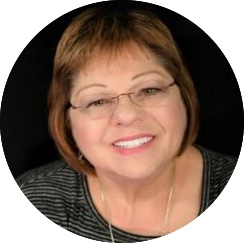
Rosemary Coates founded the Institute in 2014 after the 2012 election. “Then President Obama and Mitt Romney were China bashing like crazy,” she says, “and at the time, I was advising companies how to off-shore. I couldn’t tell anyone what I did for a living.
“The election debates prompted discussions with my clients about bringing manufacturing back. I came up with the idea of creating a non-profit using interns from the University of San Diego – and pitched it to the university. They agreed agreed to incubate the Institute.”
Three years later, Coates took the Reshoring Institute nationwide – with affiliates at 14 universities across the U.S.
When asked what she’s most proud of, Coates replied, “I’m most proud of all the research we’ve done and how it’s helped us help companies develop a reshoring strategy.
“I’m also very proud of our graduate student internship program where we are educating the manufacturing executives of America.”
Get the Keep It Made USA newsletter.
Twice monthly; zero spam.
Links to cited websites and information
Reshoring Institute
Main website: https://reshoringinstitute.org
Case Study: Made in America – Vikki Vi
Survey: Survey Says: Americans Prefer “Made in USA”
Consumer Reports – Made in America, 2015 Report
Plus by Design – Vikki Vi apparel website
Products Made in the USA – Reasons to Buy American-Made Goods, Amy Livingston for MoneyCrashers

